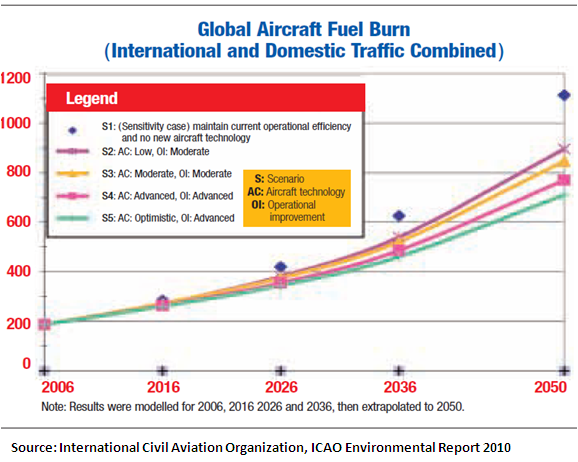Why would a reauthorization bill for the Federal Aviation Administration (FAA) have anything to say about the steps that Europe is taking to reduce carbon pollution from aviation? The answer should be nothing. But unfortunately the US Senate is considering language passed by the House of Representatives that would signal unhappiness with Europe’s efforts to control the carbon pollution from aviation. The Senate and the White House should reject this language as it is incorrect as a matter of law, would attempt to stop another country’s efforts to reduce carbon pollution, and would hamper incentives to enhance aircraft fuel efficiency which saves consumers money. A point recently highlighted by major environment, development, and faith-based groups in a letter to the Senate.
When the U.S. House of Representatives passed a bill to reauthorize the FAA they included a provision (H.R. 658, sec. 511) which would seek to undermine Europe’s efforts to control carbon pollution from aircraft that land and take-off in Europe. When the Senate passed its FAA reauthorization bill (S.233) they didn’t include such a provision and it appears that such language was never considered or debated. But now the two bills must be reconciled and there is the possibility that the Senate will agree to include the language in the final bill.
The EU’s program – the Aviation Directive – is well within the requirements of international law. Independent assessments have concluded that the inclusion of greenhouse gas emissions from international aviation in the EU’s program: “is consistent with all relevant international provisions and therefore permissible under international law”. All flights to and from Europe are subject to the same requirements to reduce pollution – they don’t discriminate between European, US, Chinese, or other carriers. This is important because international law related to aviation requires that you apply a common standard to all flights that use your airports. So each plane that uses European airports has to comply with European law – a very common requirement for companies operating in another country.
The program requires very reasonable pollution reductions. The aviation sector is a major source of the world’s carbon pollution – accounting for more emissions than the entire United Kingdom. And left unregulated, aviation emissions are on pace to quadruple by 2050 (see figure). The EU program requires a 3% emissions reduction (compared to a 2004-2006 baseline) by 2013, and a 5% reduction by 2020.  Given the needed pollution reductions to address global warming this is a very modest cut in pollution. It also provides airlines with several avenues to meet their targets. And flights arriving from countries with equivalent programs are exempted from the requirements. So any country that undertakes similar binding cuts in aviation emissions through their domestic law would be able to have their flights excluded.
Given the needed pollution reductions to address global warming this is a very modest cut in pollution. It also provides airlines with several avenues to meet their targets. And flights arriving from countries with equivalent programs are exempted from the requirements. So any country that undertakes similar binding cuts in aviation emissions through their domestic law would be able to have their flights excluded.
US companies are already competing to produce better airplanes. US-based aircraft and engine manufacturers are already making strides to produce more efficient airplanes. Boeing characterizes its 787 as having “unmatched fuel efficiency” and using “20 percent less fuel for comparable missions than today’s similarly sized airplane.” And Time Magazine just included an article highlighting Connecticut based Pratt & Whitney’s new engine: “that promises a 16% better fuel burn and carbon emissions.” The European program would encourage airlines throughout the world to purchases these more efficient aircraft and engines that US-based companies are already producing. This would help create US manufacturing jobs, while saving consumers money as the airlines spend less on fuel costs.
So why would Congress consider a provision that would send a signal of unease about the steps another country is taking to reduce carbon pollution? Especially at a time when it failed to pass a climate bill that would have addressed aviation’s emissions in essentially the same manner as the European program. Unfortunately, we don’t know why Congress would include such a provision as there has not been a debate on this language. The fate of this provision rests in the hands of a small group of Senators negotiating the final compromise bill with the House. Let’s hope they do the right thing and drop this language.
——————-
Here is the full text of the ill-conceived House language in the FAA reauthorization (HR 658):
SEC. 511. SENSE OF CONGRESS.
It is the sense of Congress that–
(1) the European Union directive extending the European Union’s emissions trading proposal to international civil aviation without working through the International Civil Aviation Organization (in this section referred to as the `ICAO’) in a consensus-based fashion is inconsistent with the Convention on International Civil Aviation, completed in Chicago on December 7, 1944 (TIAS 1591; commonly known as the `Chicago Convention’), and other relevant air services agreements and antithetical to building international cooperation to address effectively the problem of greenhouse gas emissions by aircraft engaged in international civil aviation;
(2) the European Union and its member states should instead work with other contracting states of ICAO to develop a consensual approach to addressing aircraft greenhouse gas emissions through ICAO; and
(3) officials the United States Government, and particularly the Secretary of Transportation and the Administrator of the Federal Aviation Administration, should use all political, diplomatic, and legal tools at the disposal of the United States to ensure that the European Union’s emissions trading scheme is not applied to aircraft registered by the United States or the operators of those aircraft, including the mandates that United States carriers provide emissions data to and purchase emissions allowances from or surrender emissions allowances to the European Union Member States.


